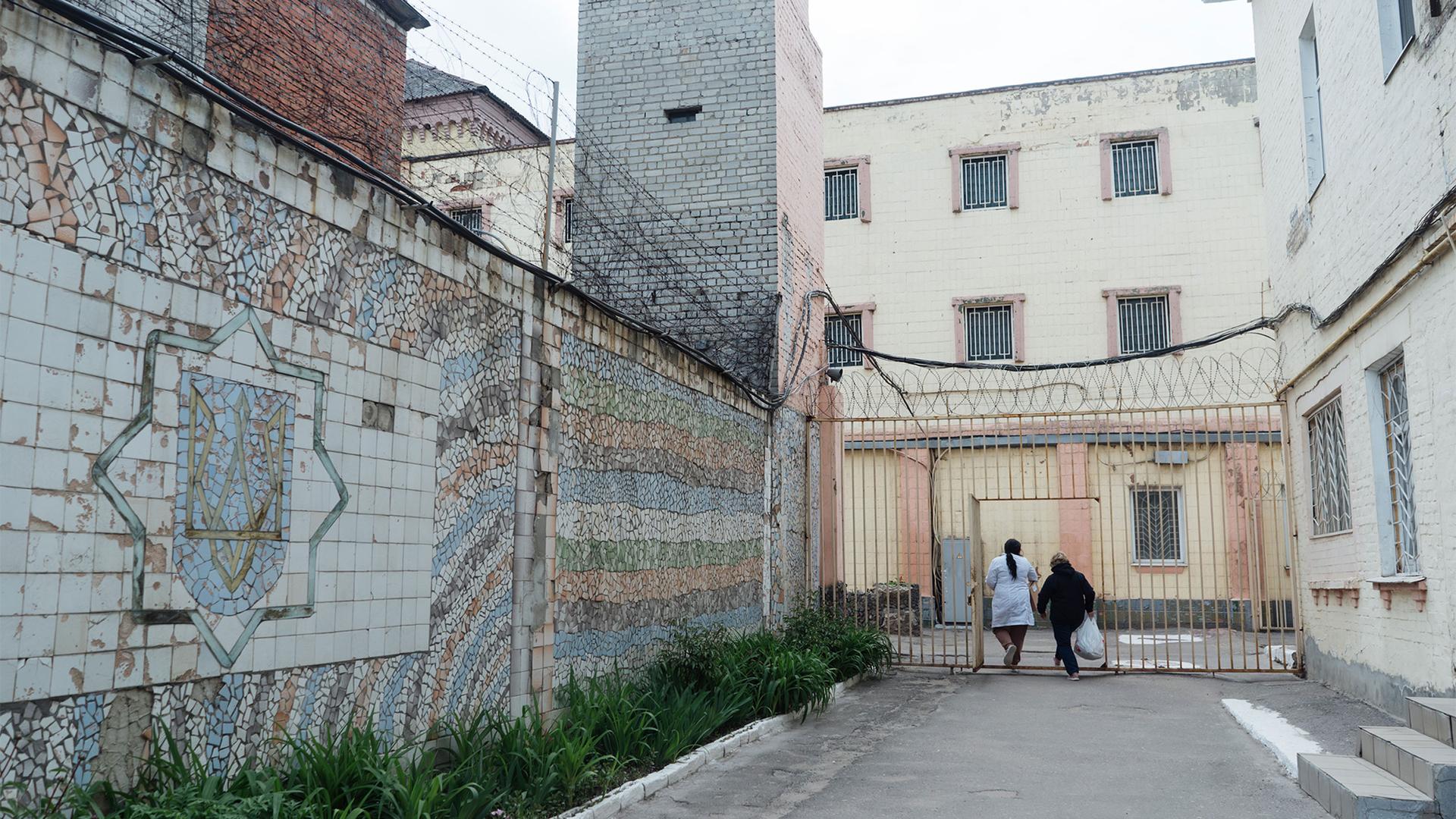The walls outside Kharkiv Pre-trial Detention Center Number 27 are faded yellow and topped with barbed wire. The facility has a maximum capacity of about 1,500 inmates.
This detention center in Kharkiv, Ukraine, has a long history going back more than 170 years.
Before the Russian invasion of Ukraine last year, the facility served as a regular jail. But it now includes a different population of inmates: Russian prisoners of war.
It’s one of the dozens of sites in the country where captured Russian troops are being held, housing about 90 POWs at a time.
Deputy warden Dmitry Kholod said that Ukraine’s military started sending POWs to this center about a year ago. Russian POWs are kept separate from the rest of the inmates.
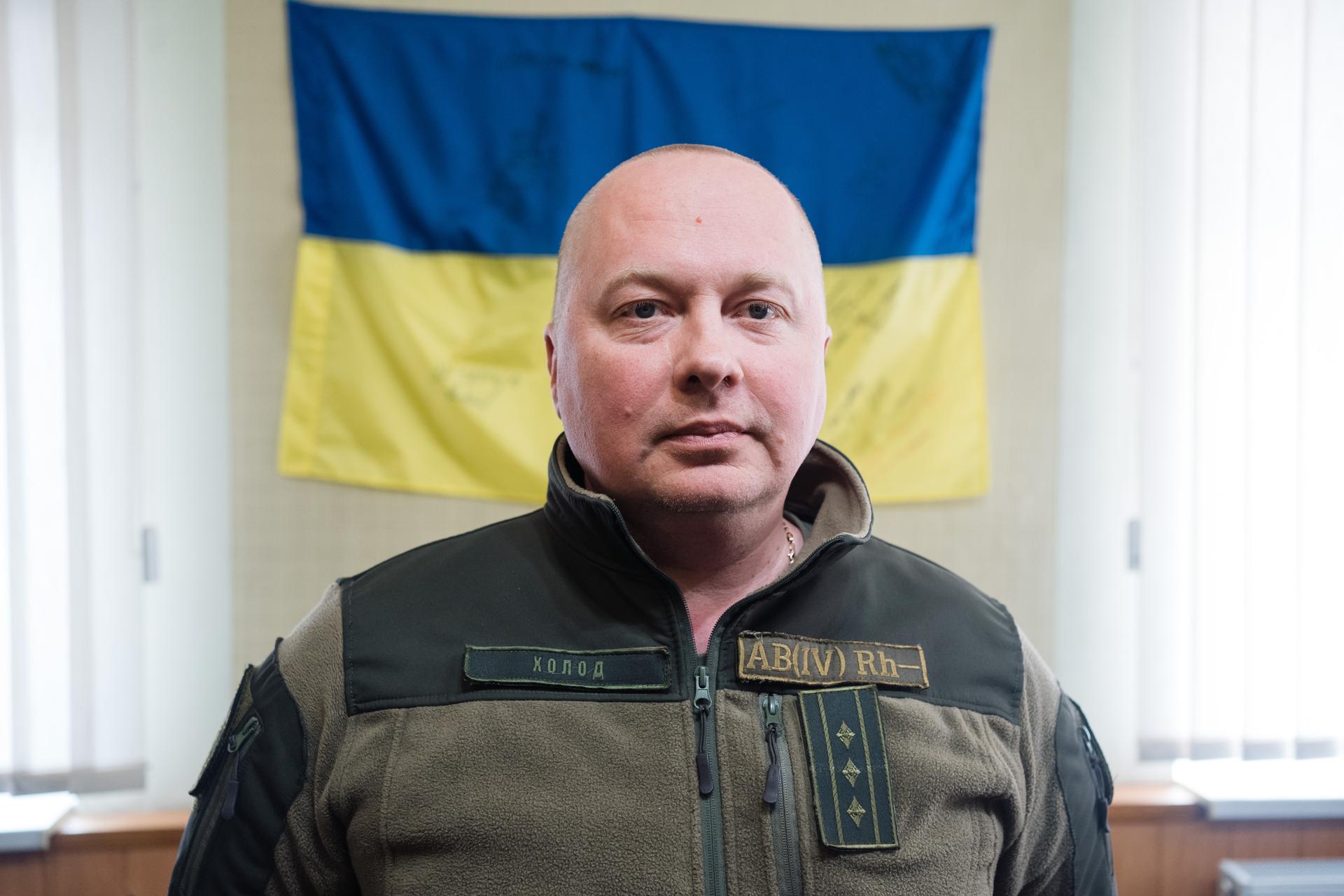
They typically spend a few weeks there before being transferred to a facility in western Ukraine designated specifically for POWs.
The World spoke with several Russian prisoners, and although Ukrainian guards were not present during the interviews, under these circumstances, it was hard to say if the men were speaking completely freely.
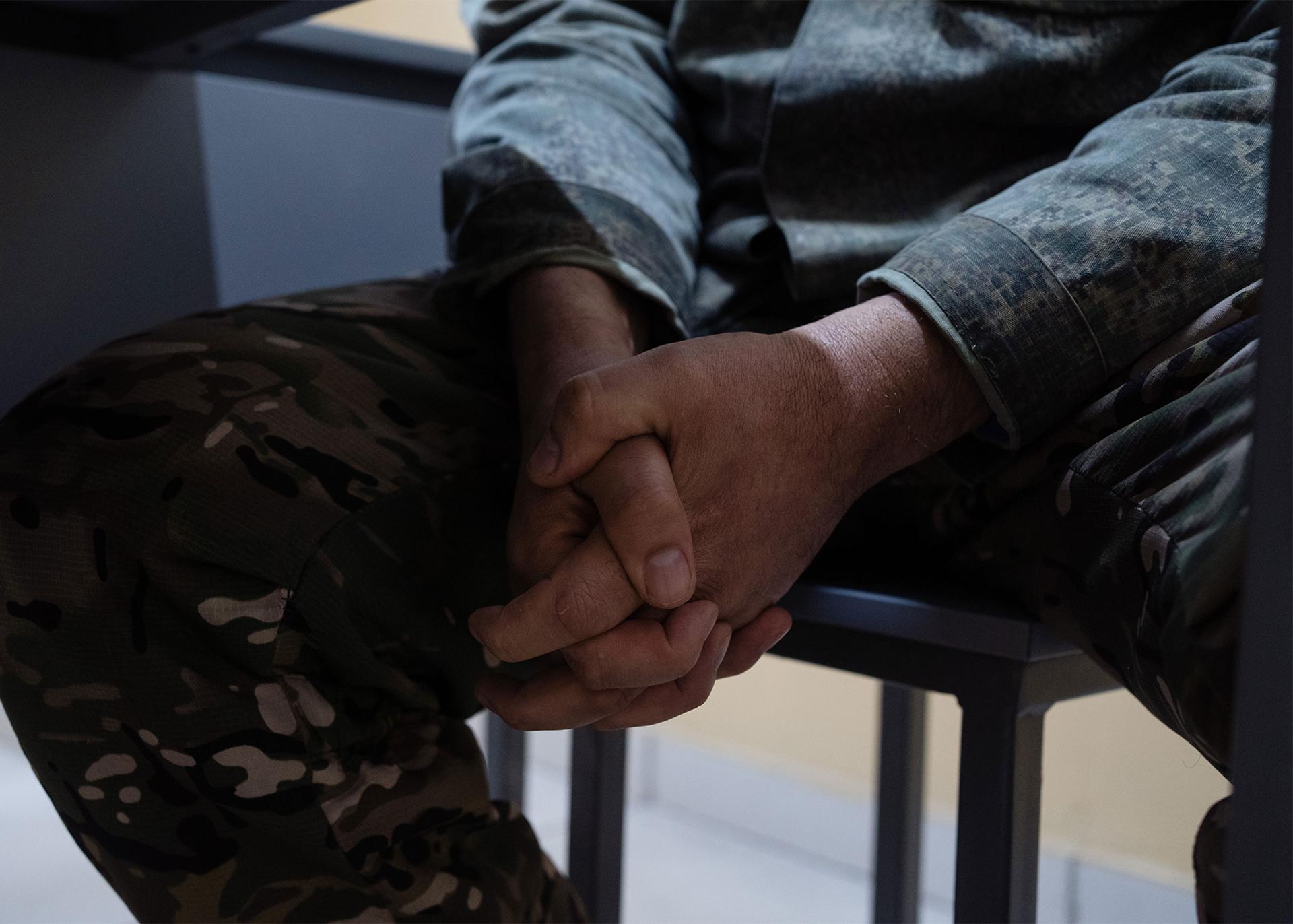
One prisoner in a camouflage jacket, in his late 20s, said that he had worked at a supermarket back home in Russia.
He said he was drafted early this year, and that he only got two weeks of training before being sent to the front lines in Ukraine’s Donetsk region.
“We were put in trenches, on the second line of defense, and we were told to defend our position,” he said.
But a couple of weeks later, he said he came to the conclusion that he no longer wanted to fight.
So, one night, he hopped out of the Russian trench and walked toward the Ukrainian side, where he was taken as a prisoner.
He was brought to the detention facility where he was interrogated by Ukrainian security officials.
He said that, overall, he’s been treated well, getting three meals a day, clean clothing and even books to read.
Other prisoners shared similar experiences.
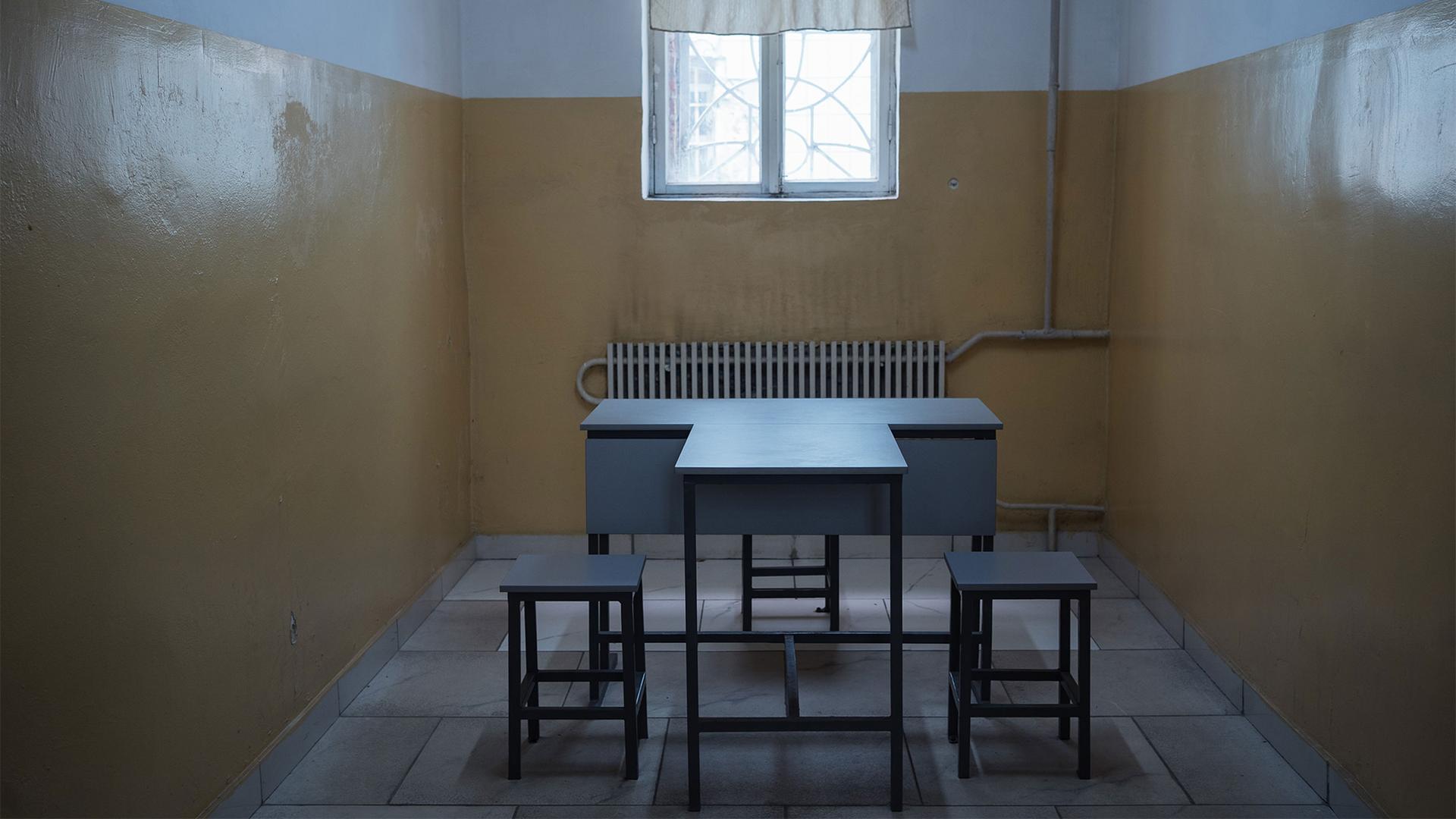
A second prisoner said he was captured in an ambush, was injured and then received medical care after being taken prisoner.
All the men shared the hope to be included in a prisoner exchange so they could go back home.
Prisoner swaps
All parties to an armed conflict, whether or not they are state actors, are bound by international humanitarian law and must abide by the Geneva Conventions.
“The basis of the [Geneva Conventions] is that prisoners of war should be treated humanely…”
“The basis of the law is that prisoners of war should be treated humanely, that’s the underlying premise of all treatment of prisoners of war,” said Wayne Jordash, an international criminal lawyer based in Kyiv. “So, the Geneva Conventions, in a sense, codified all of that to establish this standard framework.”
But Jordash said he sees a disparity in the treatment of POWs captured in the war in Ukraine.
“I think you can see the difference between prisoners of war that have been held by the Ukrainian side and those that are being held by the Russian side,” he said. “Those who’ve been held by the Russian side often seem to emerge looking emaciated, looking like they have not received proper medical treatment, telling stories of torture and ill-treatment,” something Jordash said could amount to war crimes.
Spartak Borisenko, who is the head of the special department for war crime investigations at the Kharkiv prosecutor’s office, described what happens with Russian POWs once they’re taken into Ukrainian custody.
“They’re being taken by the military, once they’ve been captured by the military they pass them on to military police,” Borisenko said. “The military police then register them and then bring them to the pre-trial detention center.”
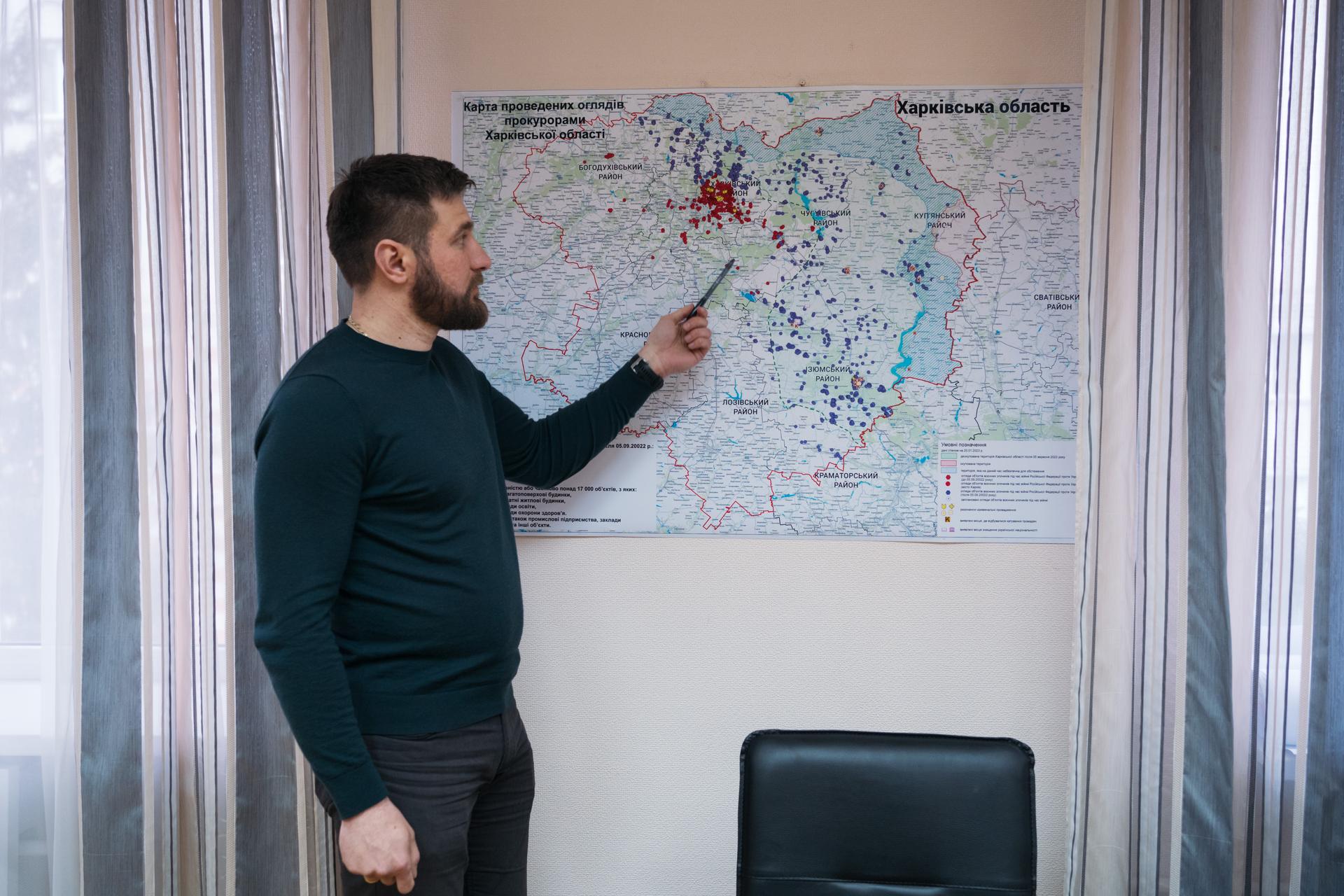
At centers like the one in Kharkiv, Russian POWs are questioned about potential war crimes, and their statements are recorded as evidence.
Borisenko said he hopes that the evidence being collected “will be then used by the investigators of the International Criminal Court at the Hague, or any other venue, for investigation of these crimes.”
Most of the cases make their way through Ukraine’s court system.
Borisenko said that Ukraine is currently investigating about 85,000 cases of potential Russian war crimes. And in Kharkiv, a few dozen Russian troops have been found guilty.
But Ukrainian law allows for the transfer of Russian POWs, even after they’ve been convicted, so they are used in prisoner swap negotiations to retrieve captured Ukrainian soldiers.
“We are arranging exchanges every two weeks, or even twice in a week,” said Petro Yatsenko, with Ukraine’s Coordination Headquarters for Treatment of POWs.
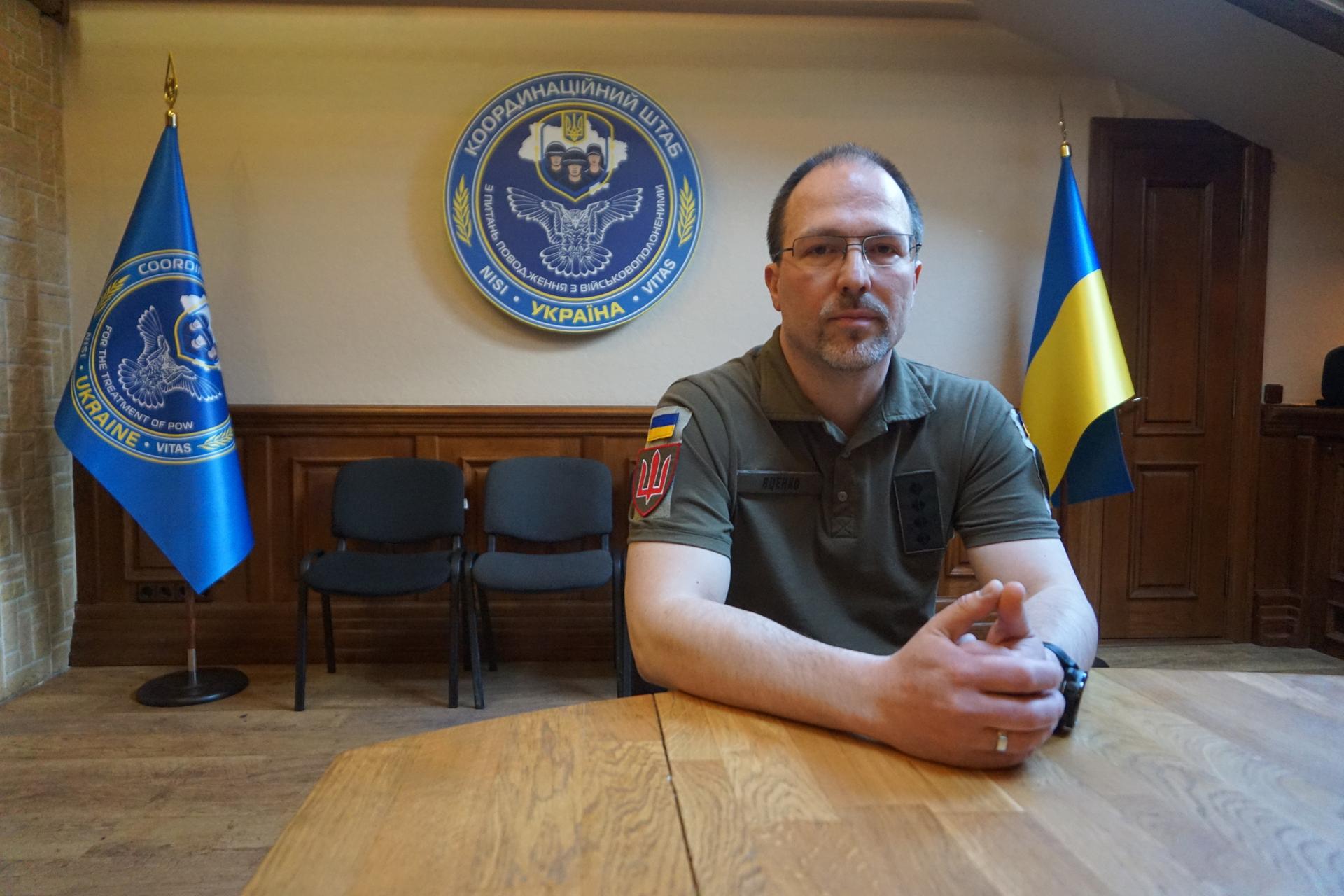
And although Yatsenko won’t disclose how many Russian prisoners of war are in Ukrainian custody, he said that because of the exchanges, which have been happening throughout the war, the number of Russian POWs is diminishing.
“During the first period of war, Russia captured a lot of Ukrainian soldiers,” Yatsenko said. So, he said he hopes that the long-anticipated Ukrainian counteroffensive that is now reportedly underway will result in the capture of more Russian soldiers — who can then be exchanged for Ukrainian POWs.
Earlier this week, Ukrainian President Volodymyr Zelenskiy said that more than 2,500 Ukrainians have so far been freed through the prisoner swaps. He then called on the international community to keep pressuring Russia to help Ukraine bring all of its citizens back home.
Volodymyr Solohub contributed to this report.
Related: ‘We lost everything’: African students who fled war in Ukraine continue to struggle
The story you just read is accessible and free to all because thousands of listeners and readers contribute to our nonprofit newsroom. We go deep to bring you the human-centered international reporting that you know you can trust. To do this work and to do it well, we rely on the support of our listeners. If you appreciated our coverage this year, if there was a story that made you pause or a song that moved you, would you consider making a gift to sustain our work through 2024 and beyond?
